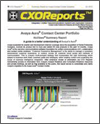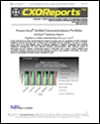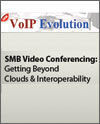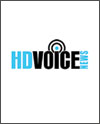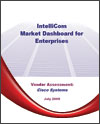September 18, 2008
Study: USB Multi-Monitor Systems Use 80 Percent Less Power than Discrete Graphics
 By Raju Shanbhag, TMCnet Contributor
By Raju Shanbhag, TMCnet Contributor
Responding to growing interest in Green IT, DisplayLink, a provider of networked display technology, studied the methods used to provide multi-display capability and their respective power requirements. The study reports that IT departments around the world are giving high priority to energy conservation as the fuel costs and environmental concerns rise all over the world.
The DisplayLink study measured the power needed for a desktop PC to run one to four LCD monitors. The study used two identically configured systems for this purpose. One system was equipped with DisplayLink-enabled USB-to-DVI adapters and software, and another with dual-DVI discrete graphics cards (the most common type of dedicated multi-display board). To measure total system power usage under different system loads, power consumption was measured at the entry of the computer power supply.
The study says adding multiple displays to a PC for instantaneous access to needed information and applications can be one of the best ways to increase productivity. The study also quotes a Microsoft (News - Alert) Research study, which states that using two or more displays can increase productivity by as much as 50 percent. When compared to those working on a single monitor, users of multiple displays make up to 33 percent fewer mistakes according to the researchers at the University of Utah. However, additional displays mean increased power consumption and generated heat. This may increase building cooling costs and strain local surge protectors in a typical office setting.
When working in a digital environment, balancing productivity gains and electrical consumption can be particularly challenging. The DisplayLink states that adding a display with a USB adapter incurred an average increase of only 4 Watts per display, or a 7 percent increase in power consumption. With the necessary installation of dedicated hardware inside the computer, the discrete graphics solution uses considerably more power.
The study also states that USB graphics solution used up to 80 percent less power to drive an extra display than a discrete graphics solution. Also, the system used only 22 percent more power (a total of 62 Watts) than needed to drive a single display when three additional displays were connected to the system using USB adapters (for a total of four displays).
“We have always said that USB-based networked displays were far more cost-effective and simpler to use than discrete graphics solutions. Now, we’ve shown they are significantly more energy efficient as well,” said Dennis Crespo, executive vice president of marketing and business development at DisplayLink. “Clearly, IT administrators and consumers who are serious about cutting back on electrical usage, whether as part of an initiative to ‘go green’ or simply to lower their electric bills, will see USB connectivity offers significant, real-world advantages over discrete graphics cards.”
INTERNET TELEPHONY Conference & EXPO — the biggest and most comprehensive IP communications event of the year — is going on this week (September 16-18, 2008) in Los Angeles, California! The show features three valuable days of exhibits, conferences, and networking opportunities you can’t afford to miss. Be sure to check out TMCnet.com and blogs from Rich Tehrani, Greg Galitzine, and Tom Keating for news highlights from the show. See you there!
Raju Shanbhag is a contributing editor for TMCnet. To read more of Raju's articles, please visit his columnist page.
Edited by Michelle Robart





